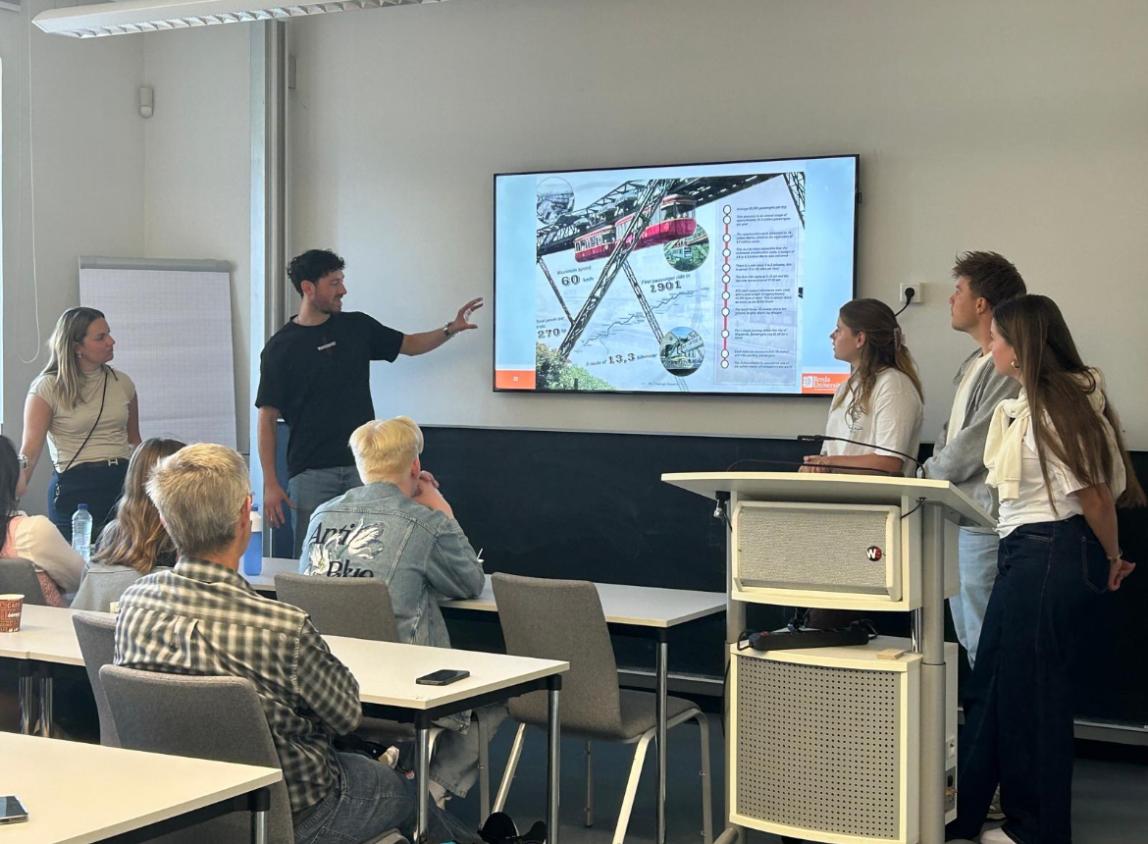
International collaboration and creative solutions in Wuppertal
06/25/2025 - 15:38
This spring, five third-year Built Environment students from BUas took part in the Fresh Brains Week held in Wuppertal, Germany. The international project is part of the PRO module: RBI and Challenges, and centres around knowledge sharing, creativity, and collaboration between students from four European institutions: BUas, Windesheim (NL), Bern University of Applied Sciences (CH), and the University of Wuppertal (DE), which hosted the event this year. Each year, a different university takes on the role of organiser.